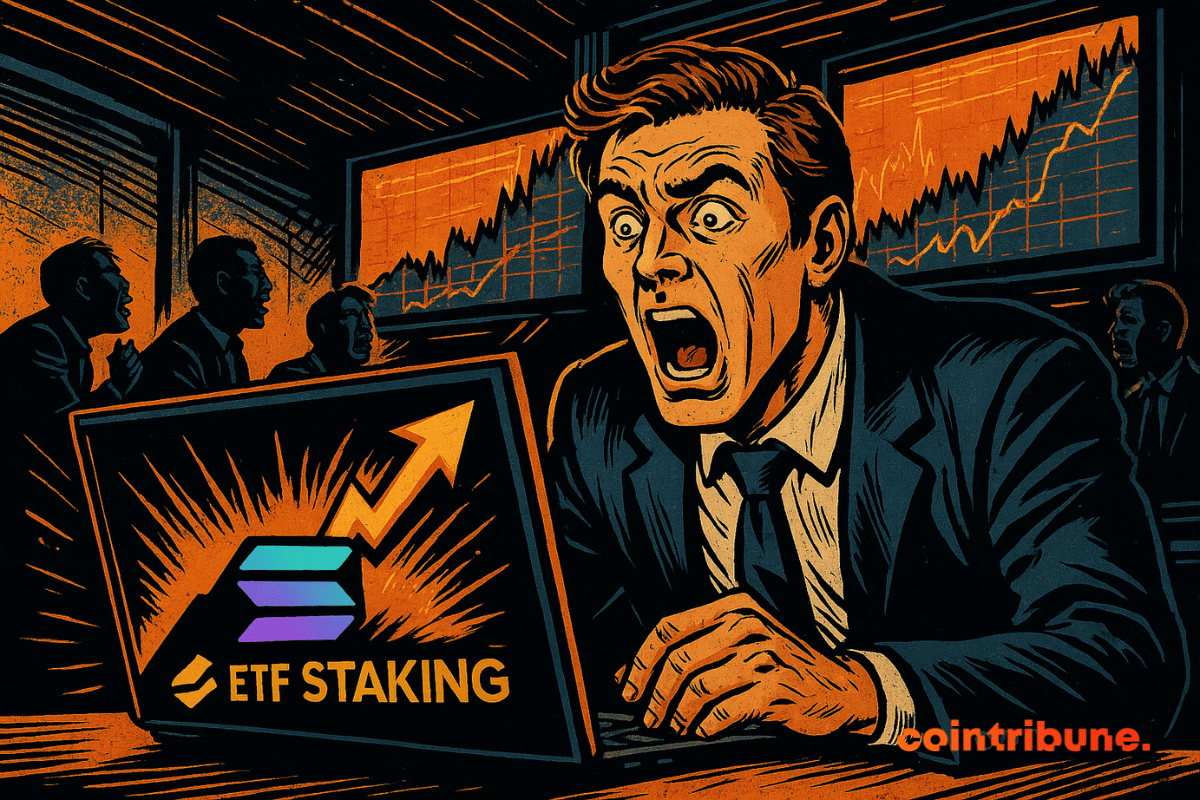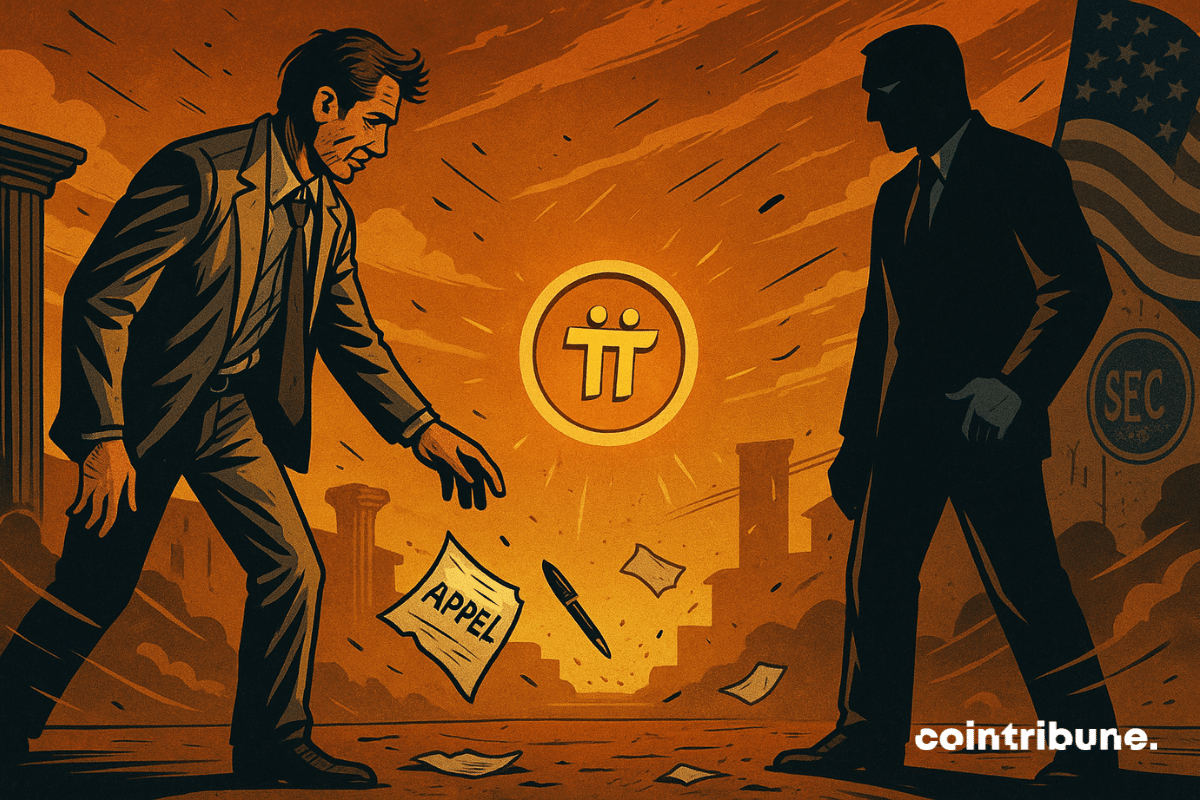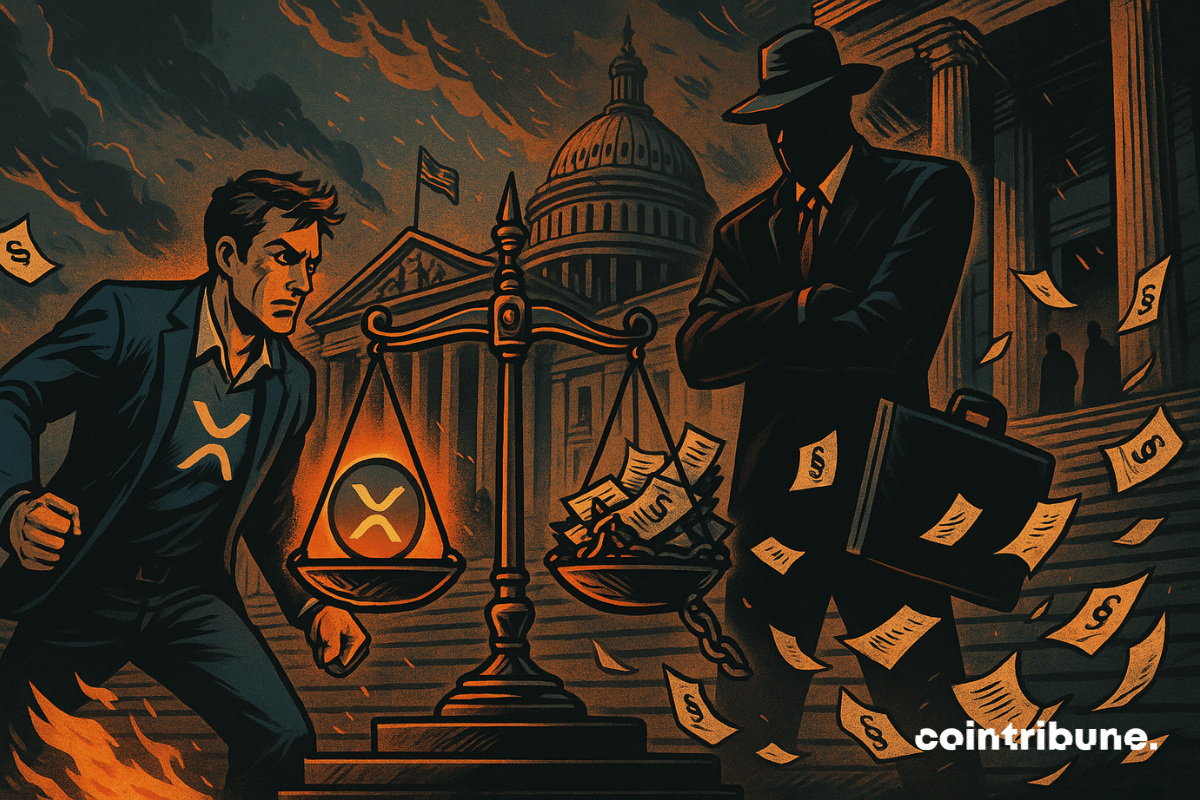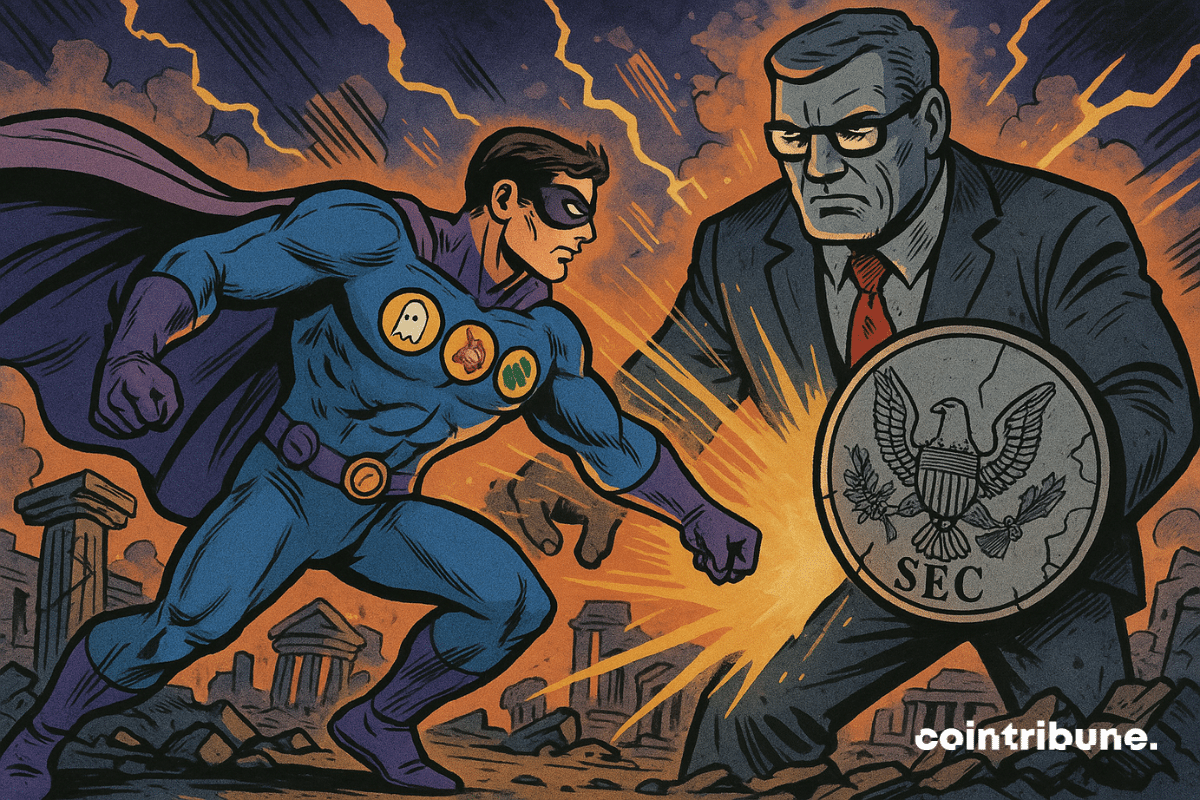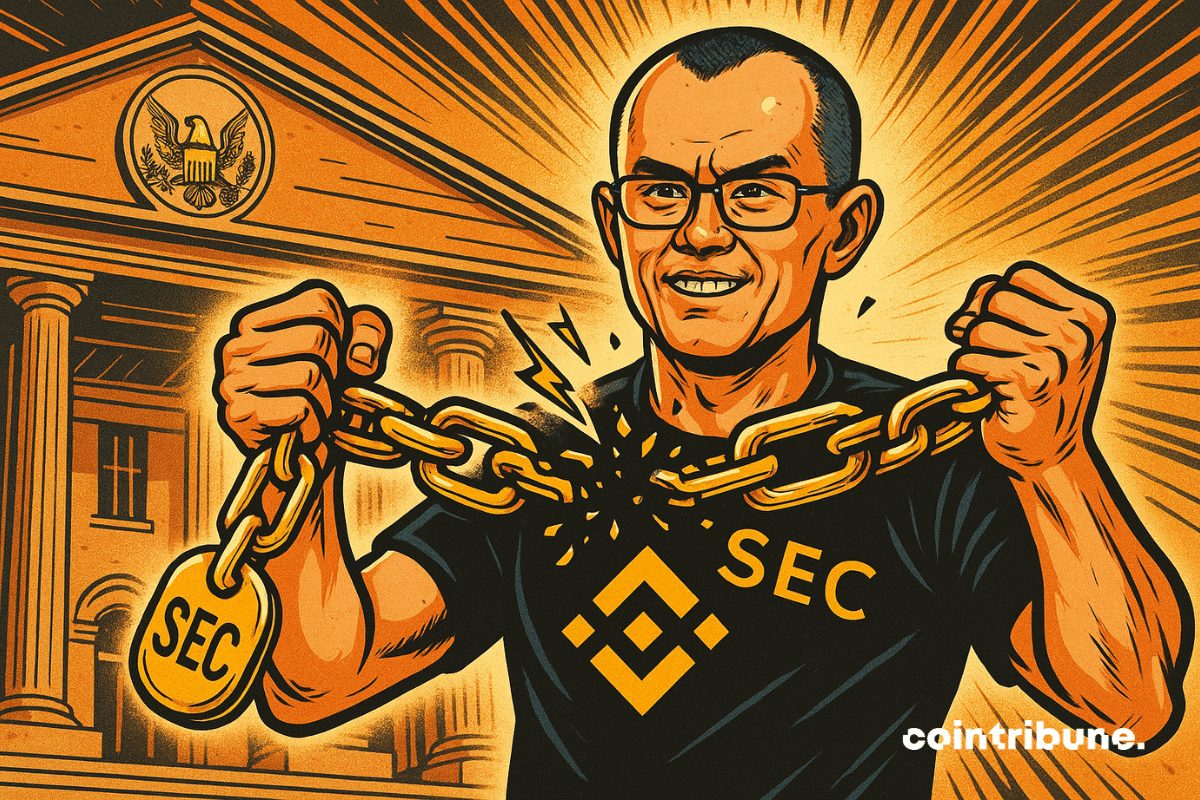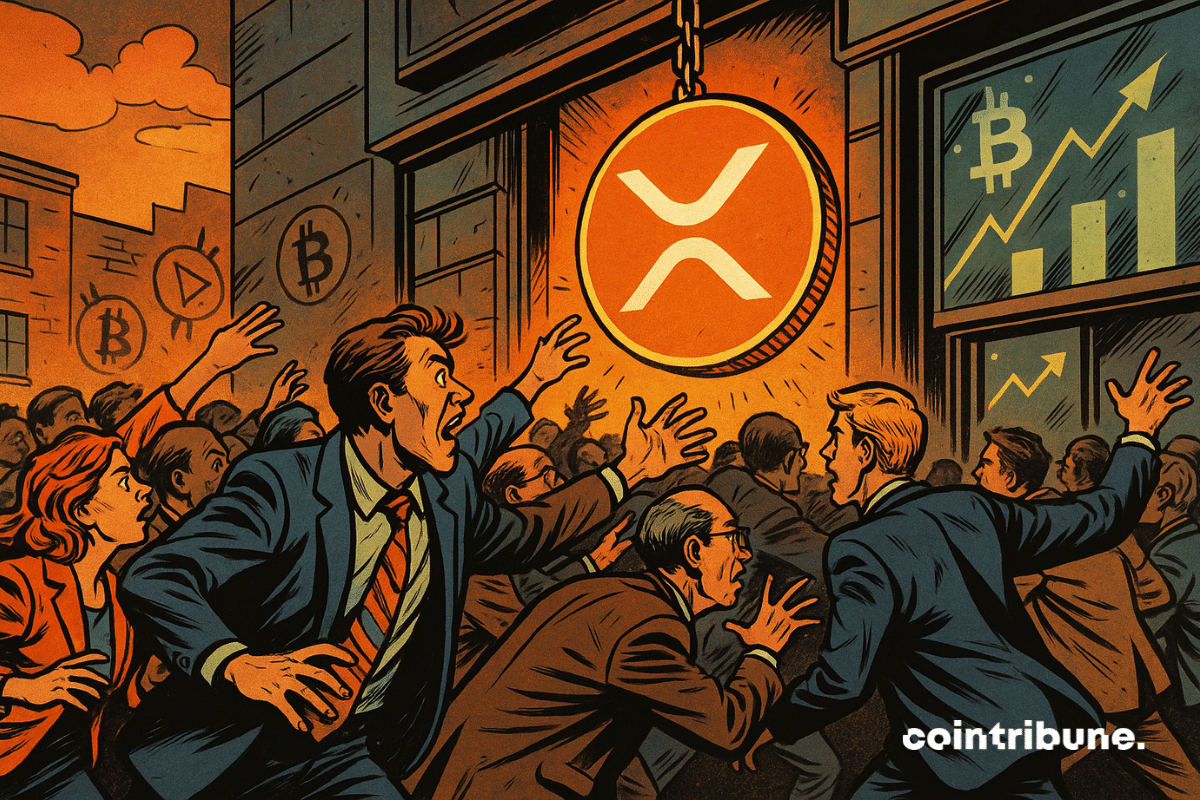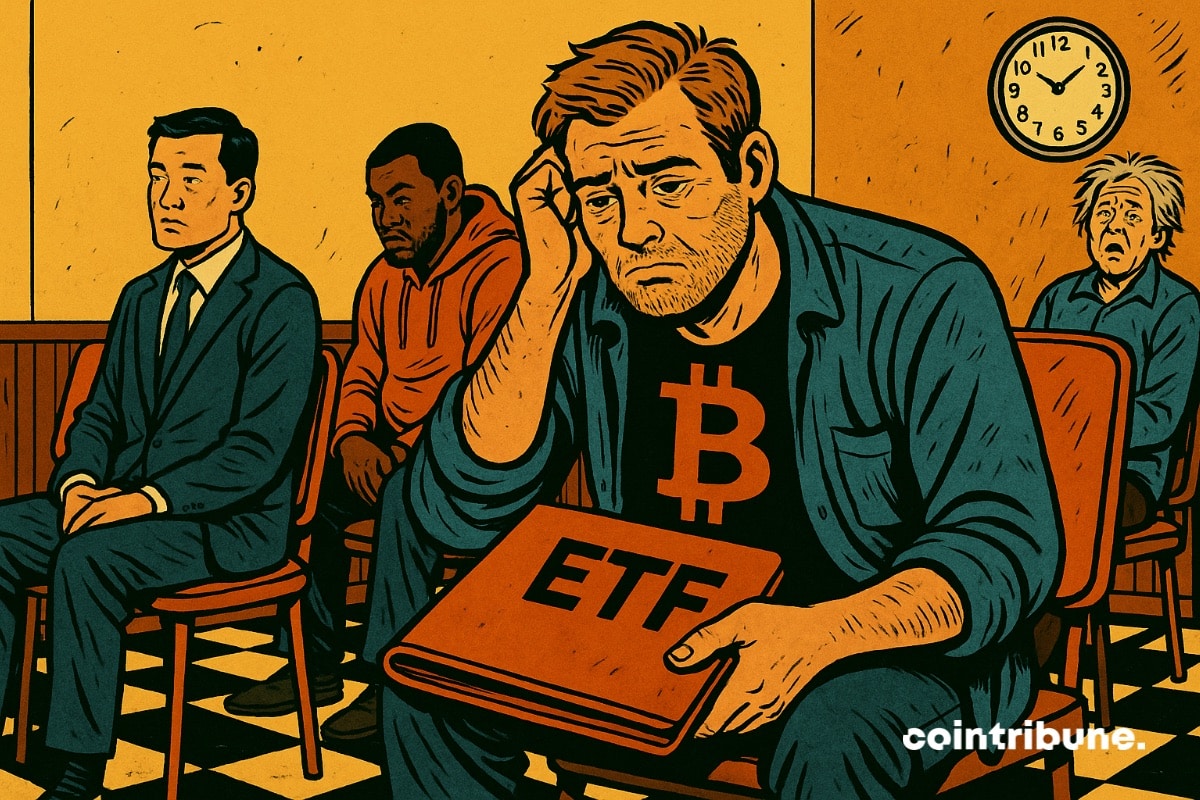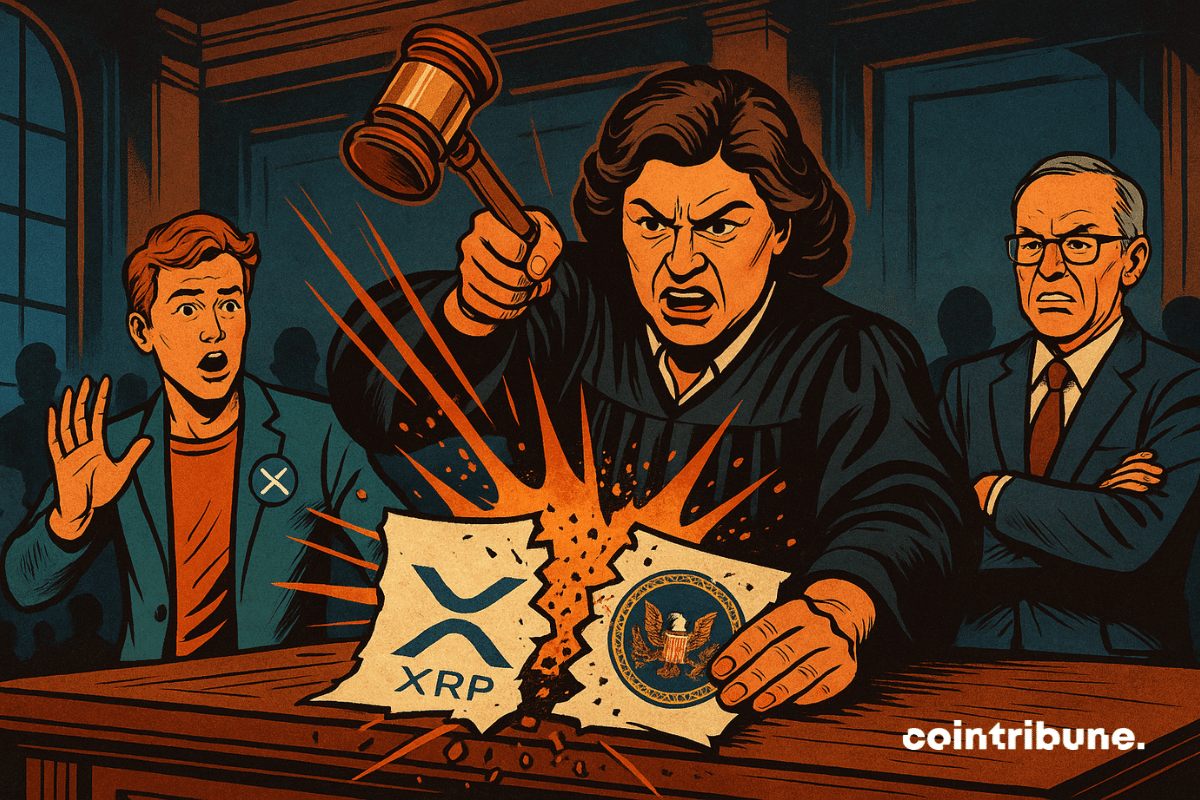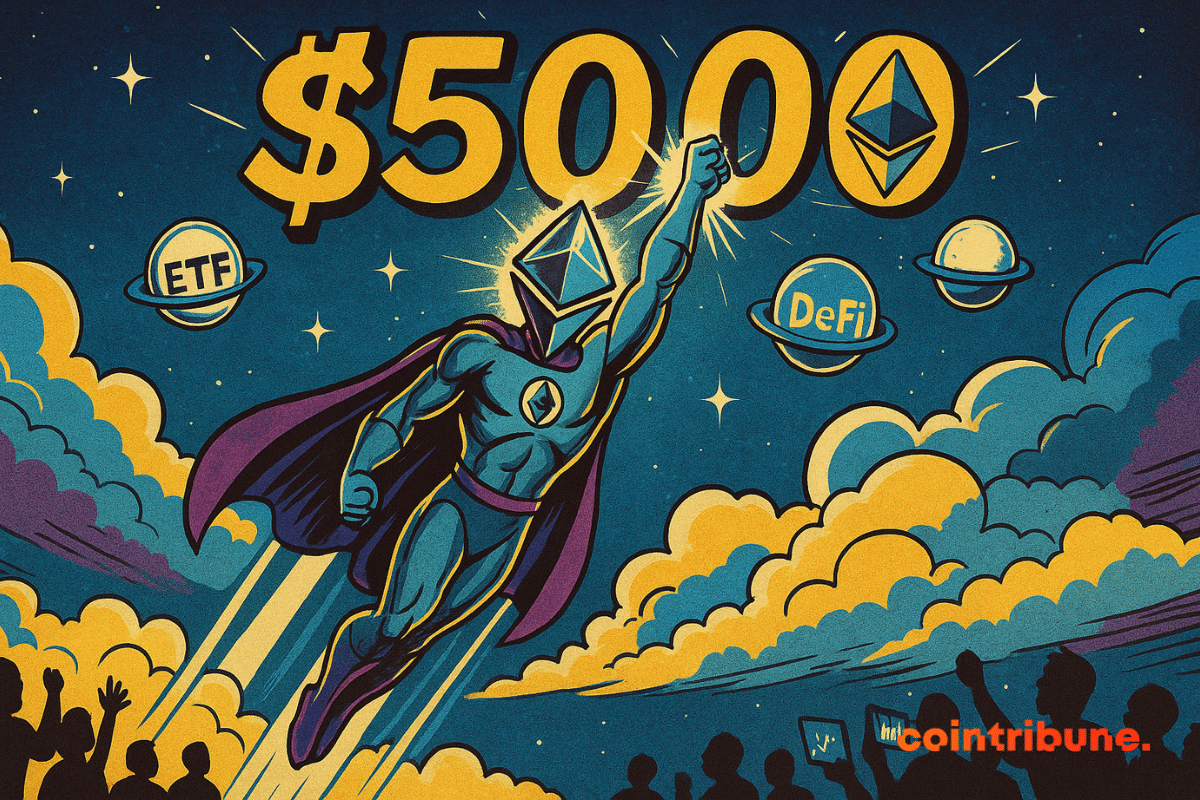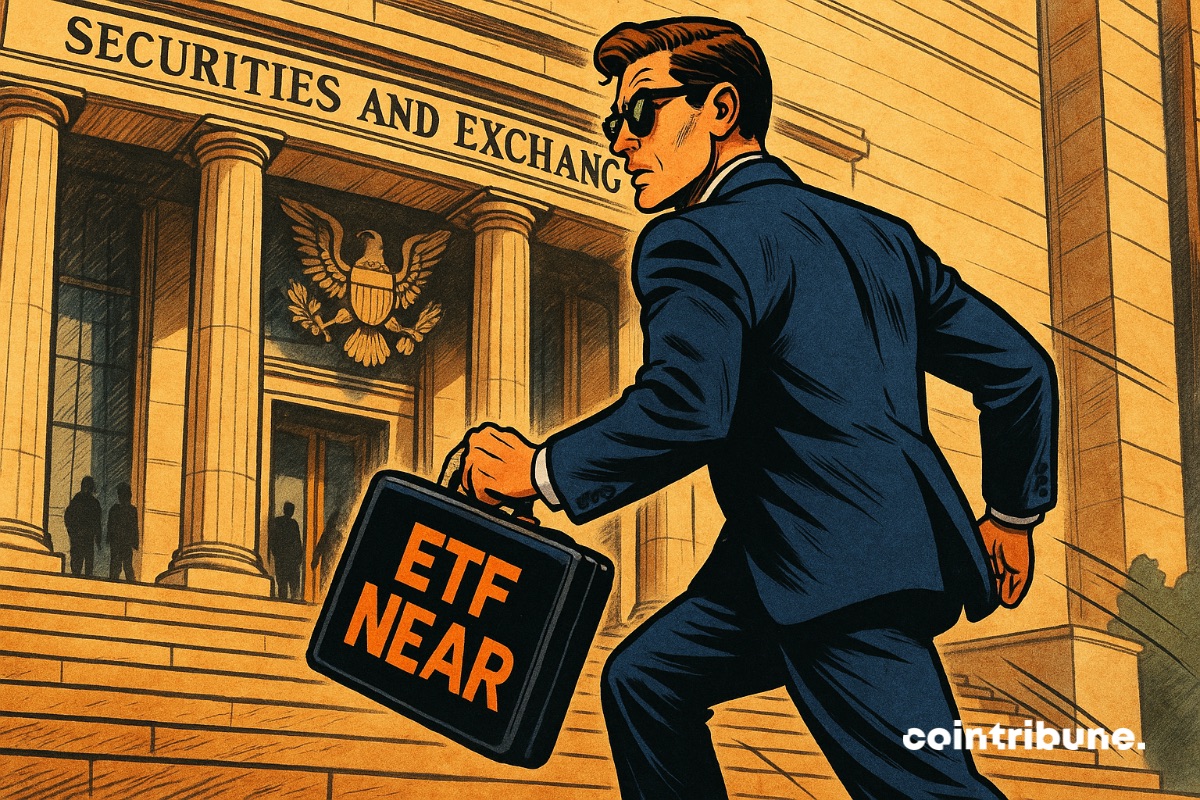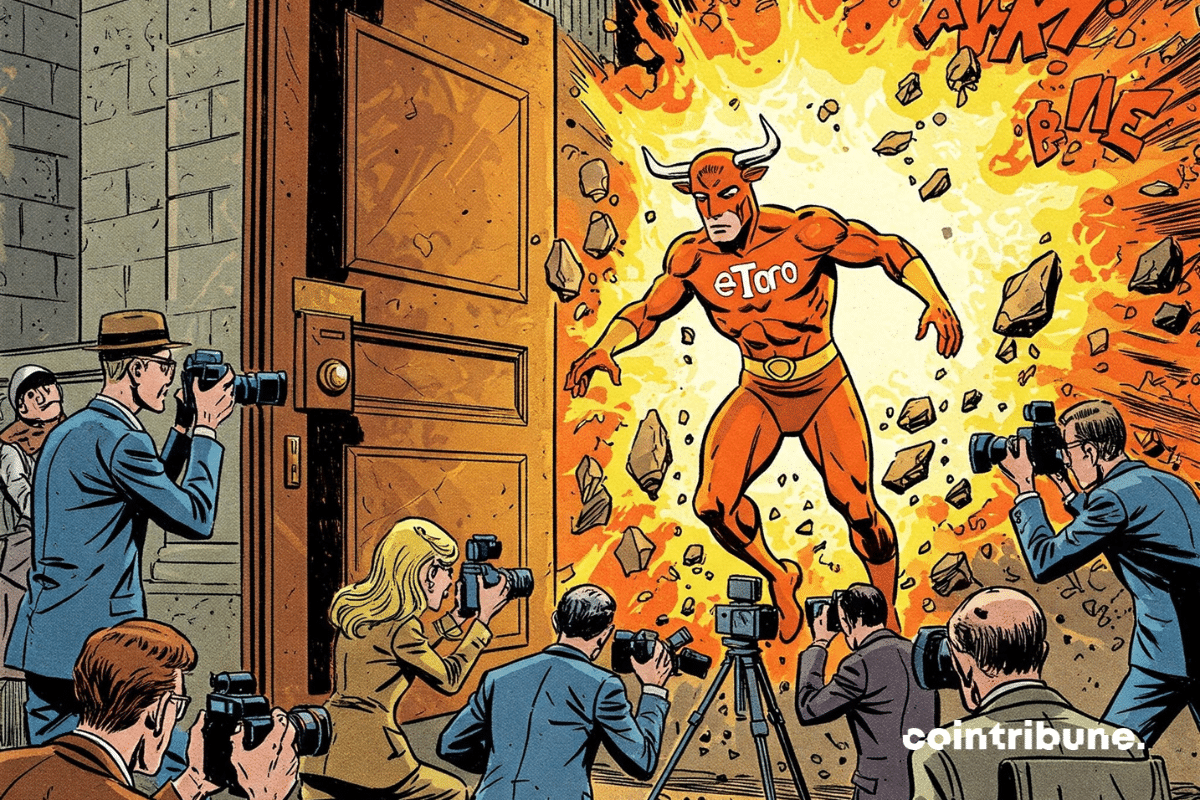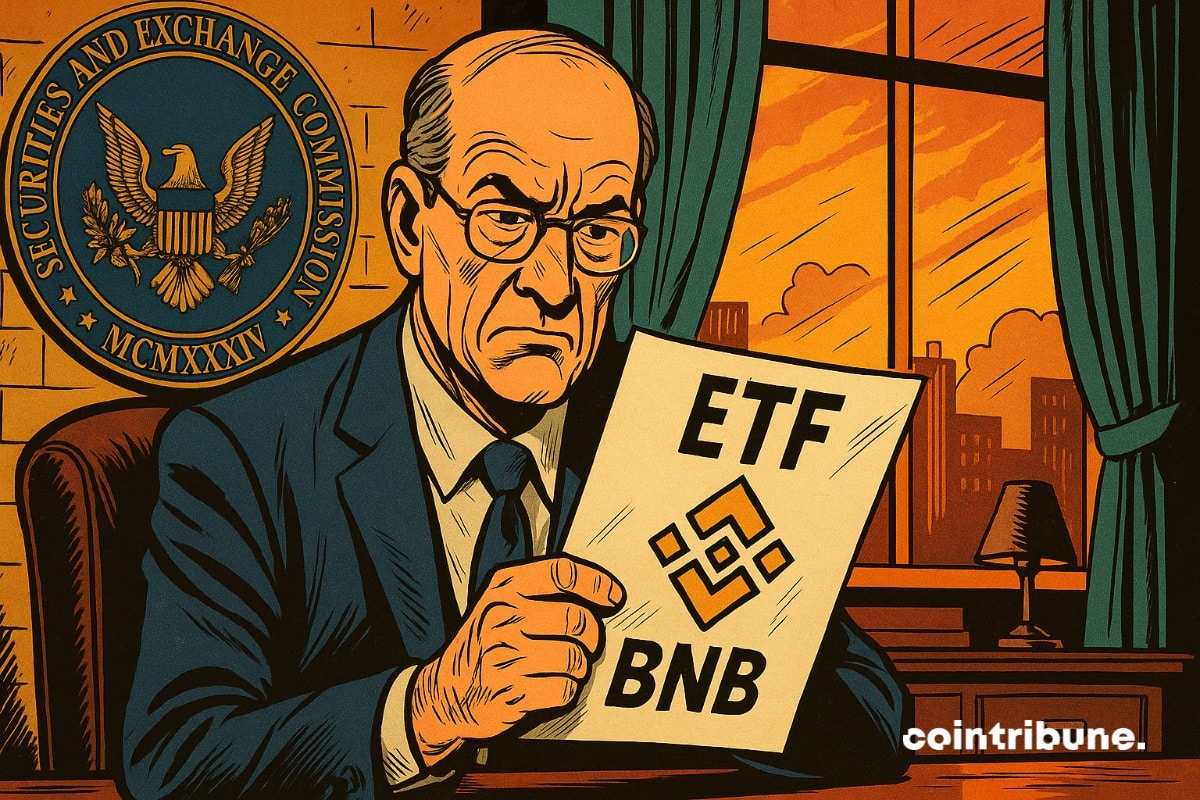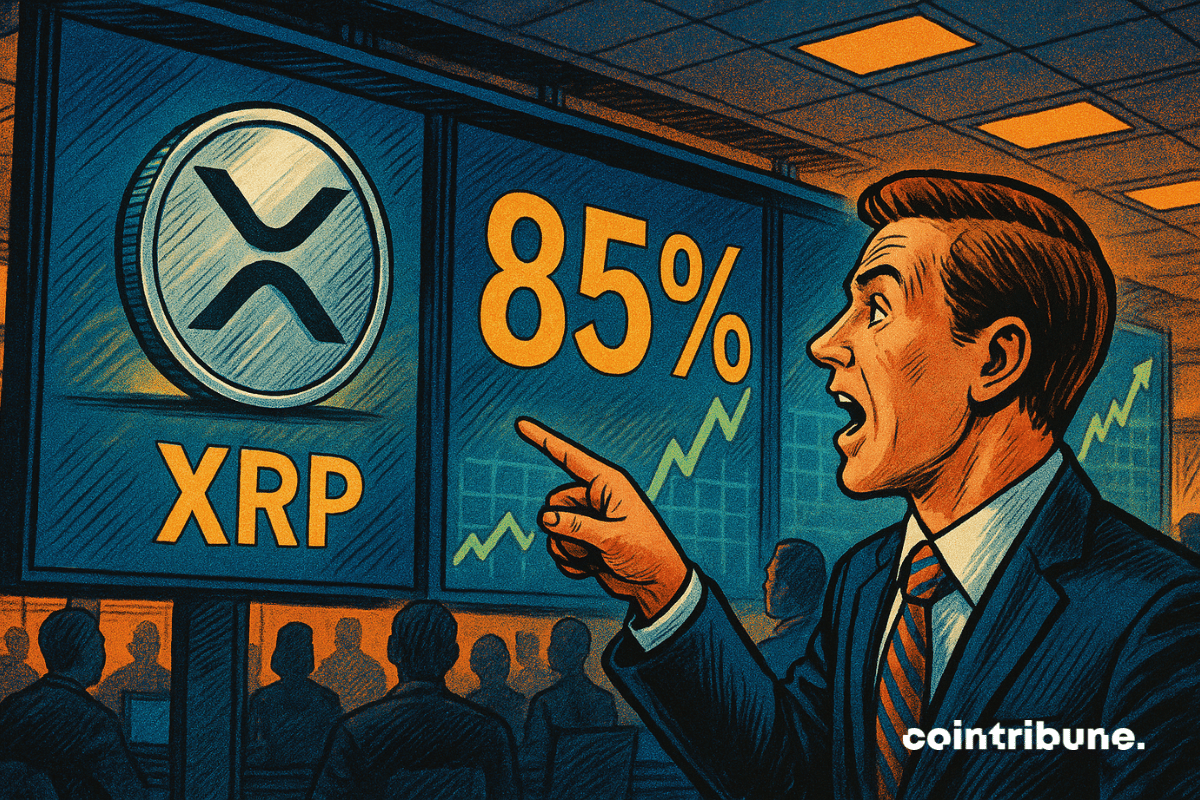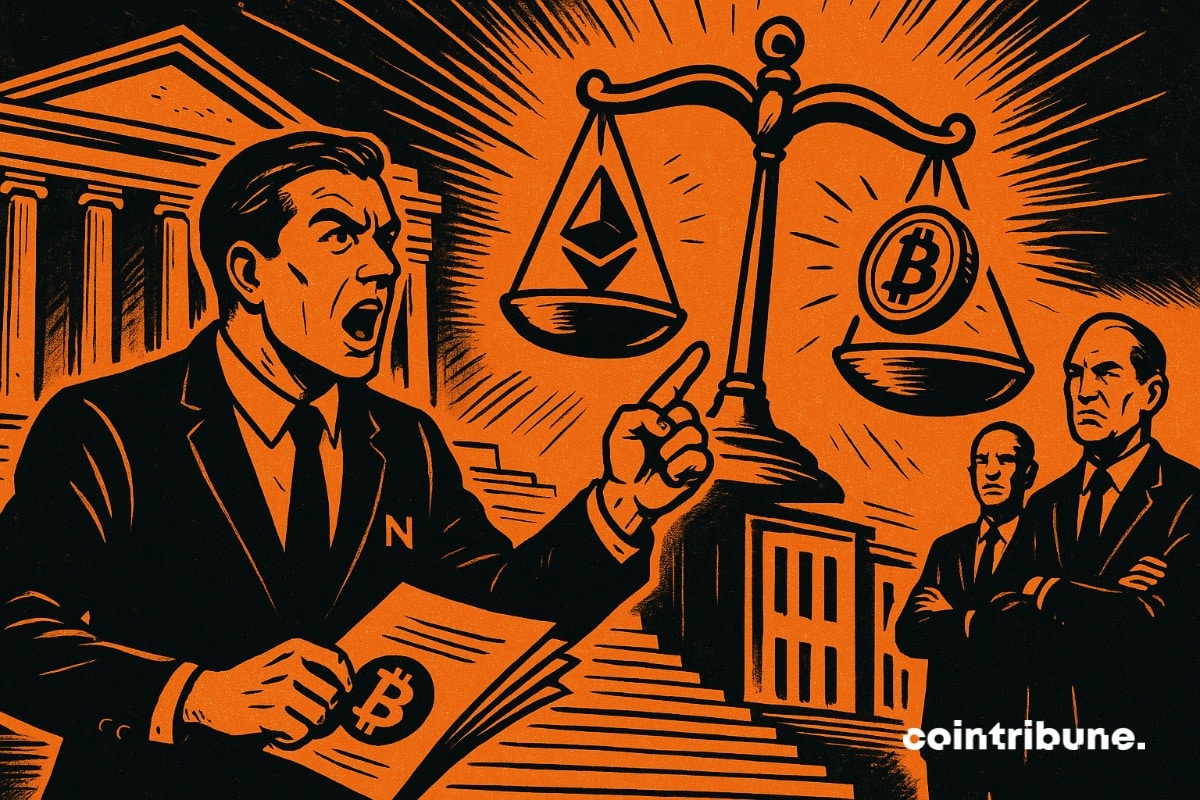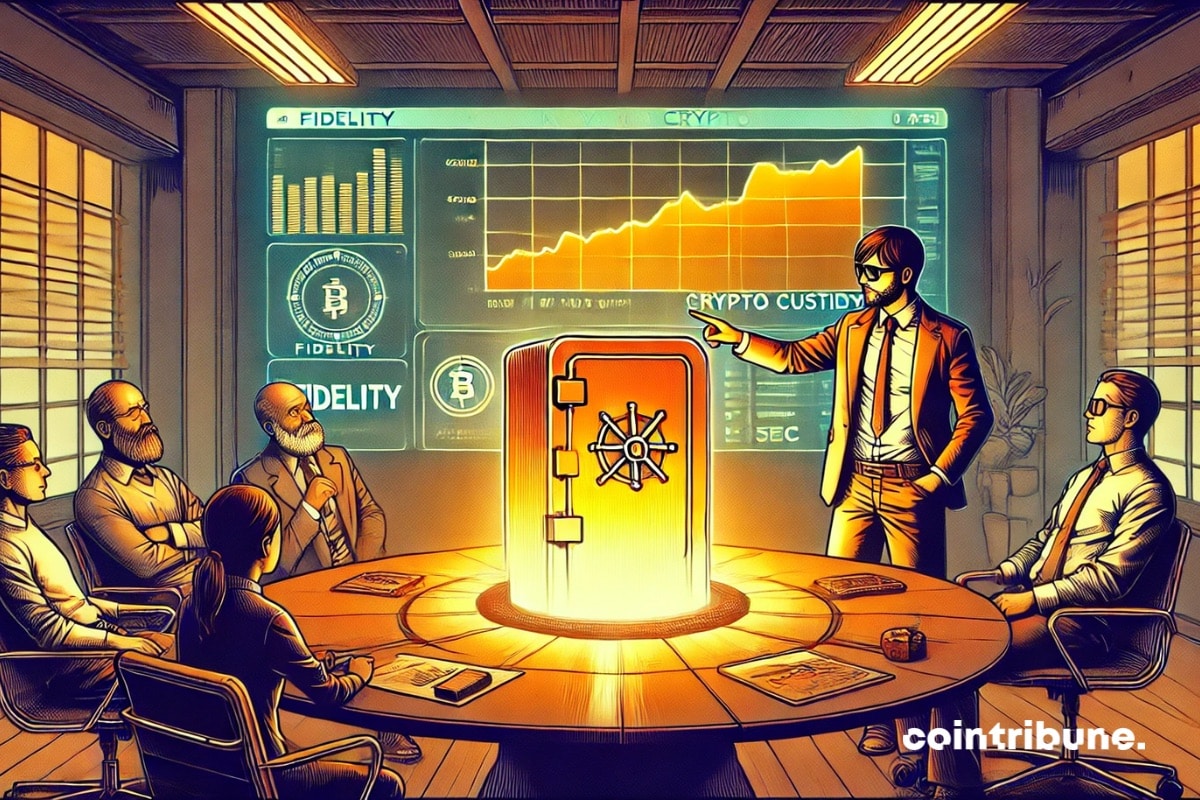A Solana ETF that stakes, analysts rejoicing, and the SEC saying nothing... Could REX Shares be trying to make crypto dance on the regulatory floor?
Securities and Exchange Commission (SEC)
After more than four years of legal battle and a globally scrutinized decision, Ripple is ending its showdown with the SEC. The withdrawal of its appeal, along with the one expected from the regulator, seals the epilogue of a landmark dispute for the crypto industry. In an environment where every action by the authorities influences the market, this outcome permanently clarifies the legal status of XRP and redefines the regulatory framework in the United States.
The regulatory lock on cryptocurrencies in the United States could soon be lifted. According to Bloomberg, the spot ETFs for XRP, Dogecoin, and Cardano now have a 90% chance of being approved by the end of this year. This is a first, as only Bitcoin and Ethereum had previously received the SEC's approval. Behind this shift is a clear signal: the American regulator is changing its tone. And altcoins, long kept at bay, are set to join the arena of traditional financial products.
For five years, the Ripple vs SEC case has crystallized tensions between crypto innovation and American regulation. On June 17, Ripple filed a strategic motion with Judge Analisa Torres, aiming to close the case without further judicial confrontation. If accepted, this initiative could accelerate the resolution of the dispute, but also redefine the relationship between blockchain companies and financial authorities in the United States. A legal precedent may be on the verge of being established.
Seven giants align for Solana ETFs, the SEC plays the waiting game: suspense, thrills, and staking in the plush backrooms of the American regulatory temple. Stay tuned...
Thanks to a more favorable attitude from the SEC, DeFi governance tokens are resuming their upward trend.
Crypto is entering a new era in the United States. The SEC supports self-custody and defends users' freedom. Details here!
Gemini takes a strategic step with the filing of an IPO project with the SEC. In an industry where every initiative from a historical player can reshape the market, the platform founded by the Winklevoss brothers aligns itself with traditional finance without renouncing its crypto roots. Against a backdrop of regulatory relaxation and renewed enthusiasm for cryptocurrencies, this decision is not merely a tactical move, as it lays the groundwork for a new balance between decentralized innovation and traditional stock market infrastructures.
The SEC turns the page on its standoff with Binance, bringing an end to a landmark proceeding of the Gensler era. By withdrawing its complaint against the exchange, its founder CZ, and Binance.US, the regulator sends a strong signal: the political gravity in Washington is shifting. This judicial withdrawal goes beyond mere legal considerations and illustrates a strategic repositioning, as the lines of crypto regulation in the United States are being redrawn under the Trump administration.
In a crypto ecosystem where every move is scrutinized by investors, the sudden rise of XRP on the regulatory scene is intriguing. In just a few days, the likelihood of approval for a spot ETF backed by this asset has jumped to 83%, according to Polymarket. This figure, far from trivial, crystallizes a strategic turning point in the battle between the crypto industry and the SEC. More than just a speculative signal, it embodies a possible shift towards long-awaited institutional legitimization.
The SEC is slowing the momentum of crypto ETFs and postponing decisions on the XRP ETF, Ethereum ETF staking, and Dogecoin ETF until the summer of 2025. These delays illustrate the regulatory complexity surrounding the integration of cryptocurrencies into traditional finance, hindering their adoption by institutional investors. However, an unexpected candidate may well be approved much sooner than anticipated.
The online trading giant Robinhood has taken a bold step by submitting a detailed proposal to the U.S. SEC. The goal? To create a national framework for the tokenization of real-world assets. But behind this initiative lies a much larger ambition: to revolutionize the traditional financial infrastructure.
The legal battle between Ripple and the SEC has taken a new turn. While an amicable settlement seemed within reach, the federal court has sharply rejected the joint attempt from both sides. This setback reignites uncertainty around a clash that has become central to the regulatory future of cryptocurrencies in the United States and reaffirms the complexity of reaching a clear outcome in a case closely monitored by the entire industry.
While Ethereum surged by 43.6% in a week, reaching $2,600, the prospect of a return to $5,000 is back in discussions. This threshold, long considered out of reach, is once again appearing in analysts' scenarios. For some, this surge goes beyond a mere speculative bounce but could mark the starting point of a deeper bullish phase, driven by strong technical fundamentals and a rapidly changing adoption.
In the crypto universe, it is not always innovations that set the pace, but the decisions of the SEC. By delaying the review of Solana and Litecoin ETFs, the American regulator reminds us that no altcoin will enter the institutional markets without its approval. Behind these delays, other deadlines are approaching: XRP, Polkadot, and Dogecoin. June will therefore be decisive. Each new delay fuels speculation and outlines the contours of a regulation that could disrupt the landscape.
Bitwise Investment Company has just filed an S-1 form with the SEC to launch a spot ETF linked to the NEAR Protocol, currently the 33rd cryptocurrency by market capitalization. This decision follows a preliminary administrative filing made in April in the state of Delaware, indicating that this launch was already in preparation.
eToro will raise $500 million and targets a $4 billion valuation. We tell you everything about this IPO that is shaking up the crypto sector.
VanEck, a large American asset management firm, has officially filed an S-1 form with the SEC to propose a BNB spot ETF. A bold initiative that places Binance and its flagship token at the heart of traditional finance, and could redefine institutional access to cryptocurrencies beyond Bitcoin and Ethereum.
While American regulators often take cautious positions regarding cryptocurrencies, a notable change is occurring around XRP. In just a few weeks, the probability of approval for an ETF based on the asset has jumped to 85%, according to analysts at Bloomberg. This development is transforming market outlooks and fueling expectations of new historic highs. In this context, investors, technical analysts, and institutional observers are already envisioning the scenarios that this decision could trigger.
The Nasdaq calls on the Securities and Exchange Commission (SEC) to treat certain cryptos as traditional financial securities. In a letter dated April 25, Nasdaq urged the SEC to classify certain cryptocurrencies as "stocks," emphasizing the need for clearer regulatory standards for digital assets.
Are crypto ETFs in danger? The SEC prolongs the wait despite a new pro-crypto president. The details in this article!
The SEC is changing its face, and with it possibly the future of crypto regulation in the United States. With Paul Atkins at the helm, the sector finally envisions a more coherent approach open to innovation. A decisive turning point for an ecosystem in search of clarity, after years of legal ambiguity.
The year 2025 could mark a historic turning point for crypto ETFs in the United States. More than 70 funds are awaiting approval from the SEC, covering assets ranging from Bitcoin to memecoins. This momentum could transform institutional access to crypto, but there is no guarantee of success for all.
Paul Atkins officially takes the helm of the SEC and could change the game for the American crypto universe. Details here!
The United States Securities and Exchange Commission (SEC) is hosting a roundtable on April 25, 2025, bringing together crypto industry leaders such as Kraken, Fidelity, and Anchorage Digital. The goal is to discuss issues related to the custody of digital assets and to define future regulations for the crypto sector in the United States.
As the standoff between Binance and the SEC shapes the regulatory future of crypto in the United States, both parties are seeking a new 60-day judicial stay. A strong signal, indicative of a possible strategic shift within the regulator, and a likely signing of an agreement between the two parties.
The founder of Tron, Justin Sun, claims to be unaware of reports that Changpeng Zhao "CZ," the former CEO of Binance, provided evidence against him as part of his agreement with U.S. authorities.
Is the XRP case coming to an end? Ripple and the SEC suspend their appeals. The crypto ecosystem could emerge stronger. Details!
The crypto landscape, long compared to a digital Wild West, seems to finally be seeing the emergence of a semblance of regulatory mapping. The SEC, the historic guardian of American financial markets, has just sketched out a roadmap to clarify the application of securities laws to cryptos. Far from being a flash in the pan, this initiative aims to serve as a compass for industry players, oscillating between innovation and compliance. A deep dive into the intricacies of an evolving regulation.
Ethereum ETFs, still lagging behind Bitcoin, are awaiting the blessing of staking to rise. The SEC could seal their fate by the end of 2025, but uncertainty remains.
